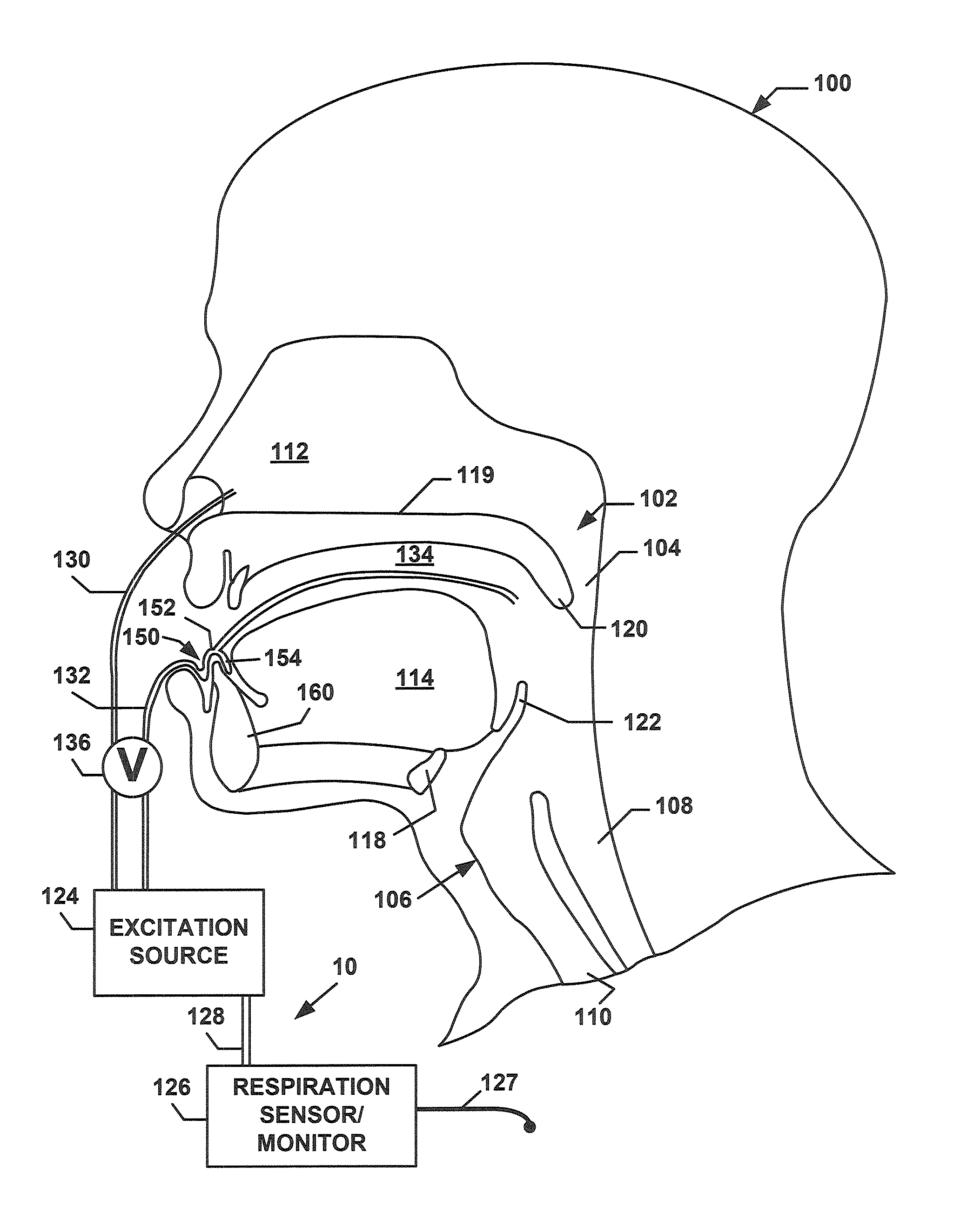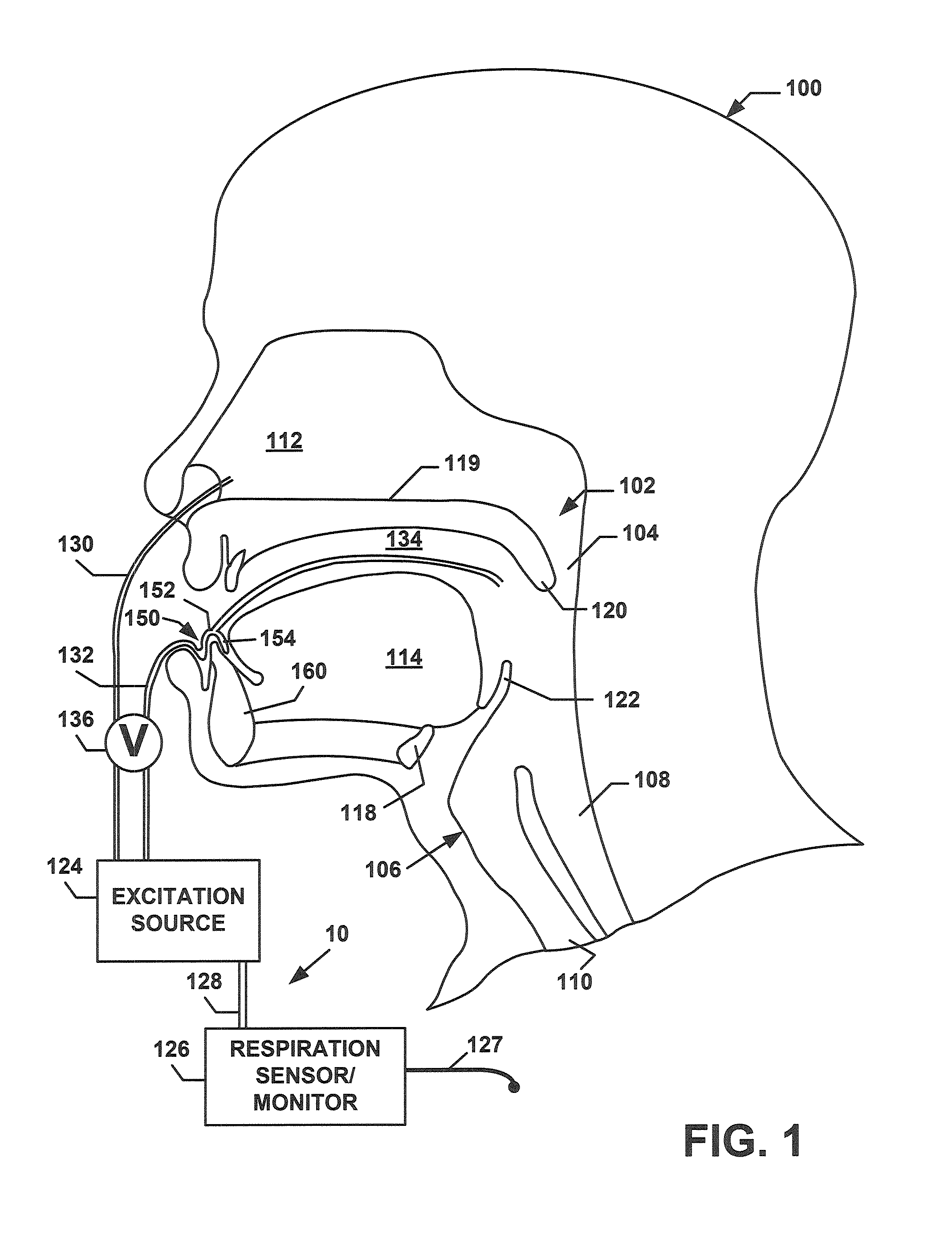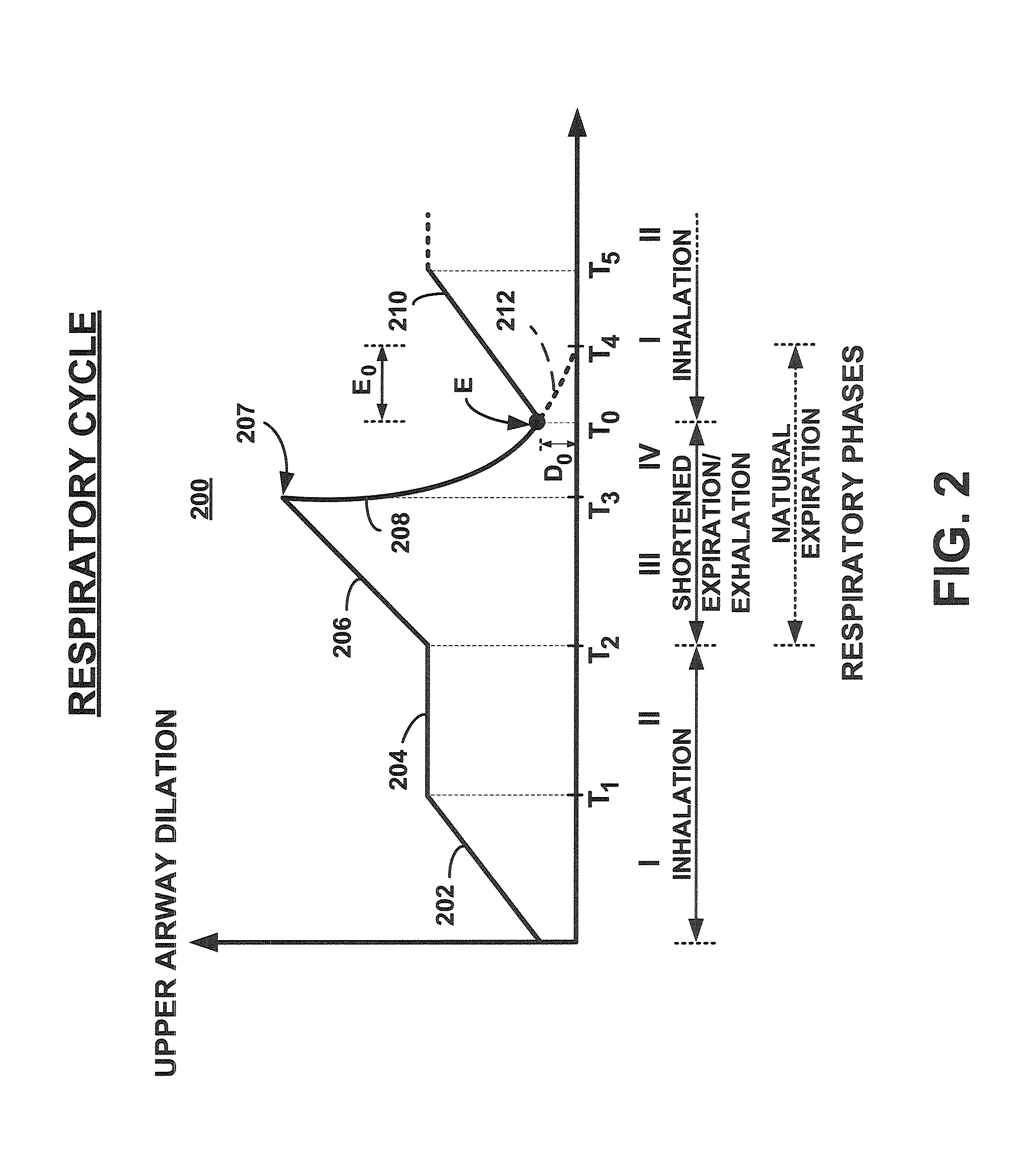Discontinuous positive airway pressure device and method of reducing sleep disordered breathing events
a positive airway pressure and sleep disorder technology, applied in the field of sleep disorders, can solve the problems of daytime exhaustion, imbalance, and upset of oxygen and carbon dioxide in the blood, and achieve the effect of reducing sleep disordered breathing events
- Summary
- Abstract
- Description
- Claims
- Application Information
AI Technical Summary
Benefits of technology
Problems solved by technology
Method used
Image
Examples
Embodiment Construction
[0021]FIG. 1 is a side view of a person's head 100 showing the placement of a DPAP device 10 according to the present invention. The person's upper airway 102 includes the pharynx 104 that splits into the larynx / trachea 106 and the esophagus 108. Although the tissue along this airway is responsive to the respiratory cycle, only the pharyngeal conduit 110, that includes the tissues in the region of the upper airway 102 that starts behind the nasal cavity 112 and ends in its connections to the larynx 106, is totally collapsible.
[0022]The pharyngeal structure and individual anatomic components within the upper airway 102 include the pharyngeal walls; the base of the tongue 114; the vallecula (or epiglottic vallecula); the hyoid bone 118 and its attachments; the soft palate 119 with uvula 120, the palatine tonsils with associated pillar tissue; and the epiglottis 122.
[0023]FIG. 2 is a chart that illustrates an exemplary respiratory cycle 200 using the DPAP device 10 of FIG. 1 according ...
PUM
 Login to View More
Login to View More Abstract
Description
Claims
Application Information
 Login to View More
Login to View More - R&D
- Intellectual Property
- Life Sciences
- Materials
- Tech Scout
- Unparalleled Data Quality
- Higher Quality Content
- 60% Fewer Hallucinations
Browse by: Latest US Patents, China's latest patents, Technical Efficacy Thesaurus, Application Domain, Technology Topic, Popular Technical Reports.
© 2025 PatSnap. All rights reserved.Legal|Privacy policy|Modern Slavery Act Transparency Statement|Sitemap|About US| Contact US: help@patsnap.com



